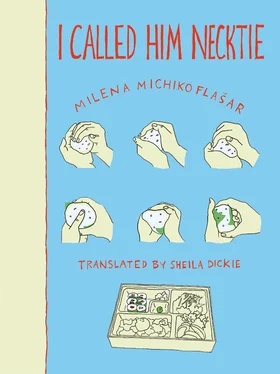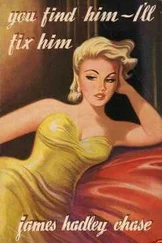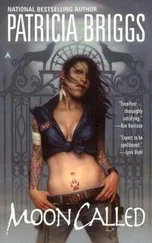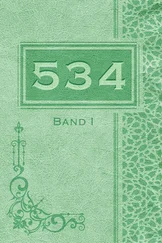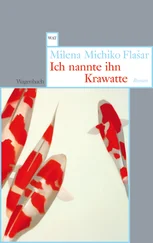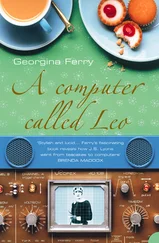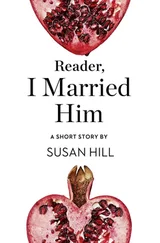77
If I could choose. He drew a circle in the gravel with the toe of his shoe. There are two people I would like to meet again. May I? A clearing of the throat, he scratched his head. Two people I’d like to encounter again in passing.
One is my teacher. Watanabe-Sensei*. I just called him teacher. When I was ten years old, my parents got it in their heads that I should take piano lessons. They hoped I had a hidden talent. Dressed in shirt and trousers and with a ridiculous tie round my neck, I wore things like that even then, they sent me up to the teacher, full of hope. I say up. Because the teacher’s house stood a bit to one side on the hill, you had to walk up an unpaved road, through a thick forest. The teacher lived there, above the town and its smoke, with his wife who had lung disease. The pure air should be good for her, they said down below. It was a big house. When you entered you had the impression it would breathe you in. The light fell first through this window, then through that one, depending on the time of day. At any hour the teacher’s house was flooded with light.
But there was something else. A slightly sour smell. Like in a hospital. I remember. The teacher laughed: That’s what it smells like when someone dies. He indicated a half-open door. My wife, a roaring laugh, lies dying. It struck me to the core. Time is precious, he laughed again. Now let’s see what you can do. I tinkled listlessly up and down the scales. The teacher, directing his gaze fiercely at my hands: What is this? You are playing as if you had no life in you! Even a dead man has more life in him than you! He laughed again. I thought: How heartless. This man is made of stone. How is it possible for him to laugh while there his wife. Speaks of feeling and has none himself. I thought it with a natural, yes, a matter-of-fact, unquestioning contempt.
78
One time the bell rang, the teacher ran to the door and I, sitting at the piano, squashed a fly. I was in the process of dissecting it, starting with the legs, when he returned and suddenly let out such a piercing cry right behind me that I thought he’d seriously injured himself. He pushed me off the stool. Slammed the piano lid shut. Screamed: What are you thinking, you little devil, to kill an innocent animal in my house. Stiff as a rod I stood before him. In shock, since his face was distorted. I felt anger bubbling up at him, as he ran back and forth still screaming, reproaching me for such a trifle. He struggled for breath, I took advantage of the lull. My lips trembling with rage I said: You’re the one who laughs when your wife coughs out there. Eerie silence. He was frozen in mid movement. Looked at me eventually, after what seemed like an eternity. Released me from what seemed like an unending stare. Took one step towards me. Halted. Said quietly, very quietly: That’s exactly why you won’t make it as a pianist. You hear nothing. You have no ear. You hear only what is on the surface, not what lies within. Pack up your stuff. The lesson is over. Tell your parents you are the least talented student I’ve ever had. It’s a complete waste trying to teach you what music is. Someone who only hears laughter in a laugh is deaf, I tell you, deafer than deaf. I laugh for her. Do you hear? He laughed. I laugh because I know she loves it when I laugh. I put sadness into it. Do you hear? He laughed. He laughed once more. She needs to know that I’m sad she is going. I put gratitude into it. Do you hear? He could not stop laughing. I put everything I feel for her into it. She knows that. She hears it. My laughter is supposed to keep her company. He sank, laughing, to the floor. I turned to him, no longer angry at all. And there I saw, he was crying. Tears were streaming down his cheeks as he laughed and cried at the same time.
79
The teacher was right in the end. I wouldn’t become a pianist. Yet I remained his student for a whole year. I spent most of the lessons listening to him. Mozart. Bach. Schumann. Chopin. In between I had to describe what I had heard, and how. I developed a sensitive ear, as he called it. His favorite word: Kanjou*. He used it in almost every sentence.
Shortly before the death of his wife, when you could hear she was doing badly, I asked him to play me a waltz, but just as he began a terrible wild coughing, hardly human in its wildness, came from the room, behind the half open door. The teacher, his shoulders slumped, laid his fingers on the keys and began to play, slowly, to the rhythm of the coughing. He did not mask it. He accompanied it. He played how his wife coughed. There is no recording of it, sadly. Although. I don’t know whether such playing could be recorded. After he finished he said: If there is anything for you to learn, it’s only that you should not be ashamed. Don’t be ashamed to be a person with feelings. No matter what it is, feel it tenderly and deeply. Feel it more tenderly, feel it more deeply. Feel it for yourself. Feel it for others. And then: Let it go.
I first saw his wife at the funeral. In a white kimono, her head pointing to the north, she lay in a coffin bedecked with sweet smelling lilies. He stood in front of it, neither laughing nor crying. In the back row someone whispered: How heartless. This man is made of stone. However, I knew better: In his restrained demeanor, with his breathing the only movement, I read how he listened to his inner silence and was united with his wife’s silence, for she was already there. It was as if he were listening for her, her footsteps slowly departing.
80
Did you see the teacher after that? I suppressed the trembling in my voice.
Yes, I visited him several more times. Obviously my parents were disappointed that the only thing he taught me was to listen. They thought he’d cheated them out of my hidden talent, and still regretted sending me to him years later. In their opinion the teacher had destroyed any musicality in me forever. And they remained convinced of that. They were almost relieved when he died, shortly after the death of his wife, and they could finally bury their hopes.
The house is still up on the hill in any case. I went there once with Kyōko. Through the boarded up windows we could make out the piano, with a sheet of music on it, covered in dust. The door to his wife’s room stood wide open, but through the cracks we could see little more than a narrow bed. We sat down on one of the steps that led into the garden and listened for a long time to the wind as it roared through the trees. I hear him playing, said Kyōko, and pointed to the waving branches. Her finger towards the skies: I hear them all, up there, playing.
Be that as it may.
I would like to see the teacher again, because I’d like to admit I was a poor student. I am sorry, I’d like to tell him. I am sorry you wasted your time on me.
He drew a circle in the gravel with his toe, put his feet inside it and took them out again. He loosened his tie: Otherwise I can’t get any air.
81
If I remember correctly. He hesitated. Actually I’d rather death were the end. A clean cut. With nothing after. You step into a vacuum. No body any more, no history. Completely dissolved. Or how is it? His voice like crumpled paper. You should know. I didn’t tell you the whole truth. His breath became shallow. When you asked me if I had children. Kyōko and I. We have. We had a son. His name was, is Tsuyoshi. He pulled the tie from around his neck and threw it quickly over the back of the bench, breathed more freely, continued. His voice like crumpled paper, carefully unfolded and smoothed out again as best as possible: Tsuyoshi. The strong one.
We don’t talk about him very often. And when we do, it is Kyōko who talks about him, not me. She curls up on the couch, like a cat, buries her head in a cushion and talks into it. Always the same: I called him the little glowworm. His smile, so bright. And: You know. The blue sweater I knitted for him. How I undid it, stitch by stitch. And: You know? The little stuffed rabbit at the head of his bed. His rosy cheeks as he slept. And: You know? The similarity. It’s always the same. She talks of things I can’t remember. Of soap bubbles and dandelion heads. The only thing I remember is the pain, a hot wave, the pain of indifference, when they told me: Your son is handicapped. He’ll never be like others. The feeling, no feeling: There’s been a mix-up. This child is not mine but someone else’s. It is a mistake, this child, I reject it.
Читать дальше
